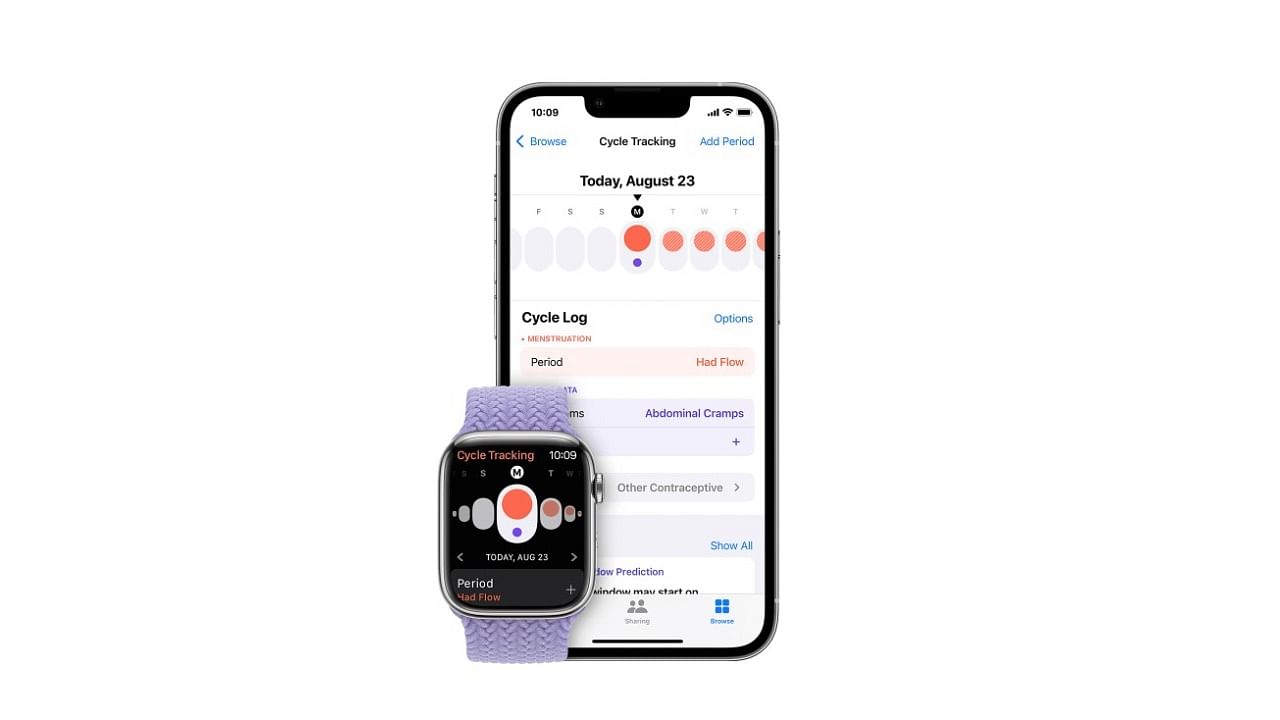
For the past several years, Apple has been collaborating with some of the top global medical institutions to find solutions and improve human health.
In February, it revealed a preliminary analysis of activity data shared from the Apple Heart and Movement Study. The research work was carried out jointly by the experts at Cupertino-based company with Brigham and Women’s Hospital, in collaboration with the American Heart Association.
The report showed participants (across all genders and age groups) with above-average cardio fitness levels averaged more than 200 minutes of activity per week, while those with high cardio fitness averaged more than 300 minutes of activity per week.
Now, Apple in partnership with Harvard T.H. Chan School of Public Health, and the National Institute of Environmental Health Sciences, has come up with a first-of-its-kind Women’s Health Study, that offers new insights on PolyCystic Ovary Syndrome (PCOS).
Women with PCOS are more vulnerable to type-2 diabetes, heart issues such as irregular heartbeat or arrhythmia , high blood pressure, and high cholesterol, noted the new report.
Around 12 per cent of the participants of the Women's Health Study were diagnosed with PCOS. Most of them were aged between 14 and 35, with a median age of 22 years old.
The report noted that 23 percent of participants with PCOS had a family history of PCOS. And, they are more likely to face unpredictable menstrual cycles after menarche (first period).
It also revealed that PCOS patients were at four times more likely to have pre-diabetic and three times more likely to get Type-2 diabetes. Also, there are double the chances of developing high blood pressure and high cholesterol.
Almost double of participants (61 %) with PCOS reported having obesity, defined by a Body Mass Index (BMI) of more than 30 kg/m2.
Furthermore, as mentioned before, Irregular heartbeat or arrhythmia was more common among participants with PCOS (5.6%) than participants without PCOS (3.7%). Full report (here).
"Despite the association between PCOS and heart-related conditions, historically, research studies about heart health have not included information about menstrual cycles. More broadly speaking, menstrual health is also significantly under-represented in the research space. Our study is filling a research gap by diving deeper into understanding how periods and menstrual cycles can be a window into overall health. The level of research being conducted by the Apple Women’s Health Study is important for having a better understanding of PCOS and its health impacts, including for people with PCOS and those that might have PCOS, but do not know,” Shruthi Mahalingaiah, co-principal investigator of Harvard T.H. Chan School of Public Health's Women Health Study report.
"There are ways for people with PCOS or a heart condition to manage their symptoms. Health care providers may recommend lifestyle changes to promote menstrual regularity and improve your heart health, including changing your exercise routine, eating more nutritious food, getting better sleep, staying hydrated, and taking care of your mental health. Research insights from our study may also help to reinforce the importance of prevention in reproductive care and in the treatment of PCOS. By increasing access to PCOS clinics and encouraging lifestyle interventions at the primary care level, health care providers will be able to provide better quality care to people with PCOS across the lifespan," added Mahalingaiah.
With Apple Watch, women can track their menstrual cycle and log related data such as abdominal cramps as well. It offers predictions when most likely the period will happen with helpful color codes.
Here's how to track the menstrual cycle on Apple Watch:
Get the latest news on new launches, gadget reviews, apps, cybersecurity, and more on personal technology only on DH Tech.